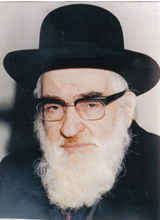Beit Midrash
- Library-Sifria
- Emuna
- Jewish Laws and Thoughts
- Personality Development
- Anava - Humility
Firstly, there is physical benefit. A person who pursues personal prestige destroys his health and ends up dying prematurely, for his life is nothing but misery and bitterness, anger and irritation. In fact, his life is no life at all, because his ignorance causes him to consider every little matter a personal insult. Such a person will never be satisfied because one who loves honor can never get enough honor. Even in his own home, among his own family members, his tempestuous, honor-thirsty soul will find no respite. This is expressed in the words of the sages, "Whoever seeks out honor, honor flees from him" (Eruvin 13b).
By contrast, the humble person, with his refined traits and understanding, not only does he not seek honor, but he feels deep pain in his soul because he is aware of his shortcomings, despite the fact that people honor him because of his virtuous deeds, his broad knowledge and his piety. As a result, his life rolls peacefully along, tranquilly and modestly, without anxiety and without aspirations for greatness. In the words of our sages, "What should a person do in order to live? ‘Kill’ himself [i.e., humble himself]" (Tamid 32b). We see, then, that a person who is humble merits long life.
There is also spiritual benefit that comes with being humble. There is no question that without the trait of humility it is impossible to perform correctly and with no ulterior motives a single Torah commandment. A humble person sees himself as a faithful servant, constantly ready to carry out his task and to fulfill the desire of his master. He continuously thanks and praises the Almighty Who chose him to serve Him and fulfill His commandments, and his one desire is the selfless performance of God’s will.
There are two things that are capable of implanting the trait of humility in a person’s heart. These matters are related to one another, and one leads to the next.
The first is to be aware that it is God Who commands us. If a king were to command somebody to carry out some deed, the subject would no doubt be very happy. He would run quickly to carry out the command with devotion and precision in order to satisfy the king’s desire. Now, if this is the case with a mortal king, how much more so with the King of Kings, the Almighty. Therefore, if a person reflects upon the fact that it is the King of Kings Who has commanded him to carry out or refrain from some action, this cognizance alone will lead him to the trait of humility.
Secondly, when a person recognizes his weaknesses and limitations, his baseness and inability to achieve his goals, and that despite this the Almighty has chosen him to serve Him, he will certainly arrive at true humility.
There is true humility and there is false humility. True humility stems from fear of God and His majestic glory. It leads to complete submission before God and recognition of one’s own absolute worthlessness, the understanding that man is little more than a grain of sand in the ocean.
False humility feigns perfection. Such a person gives the appearance of being humble and modest, but inside he burns with a desire for honor. His one intention is to deceive people and mislead them into thinking that he is humble (see Tosefot Arakhin 16b, s.v., "Ve-anava she-lo lishma").
The true test in this regard, both in relation to oneself and in relation to others, is whether or not one is drawn after worldly pleasures and luxuries. In the words of the sages, "Those who listen to themselves being offended but take no offense, who hear themselves being disgraced but do not respond – regarding such people Scripture says, ‘Those who love Him are like the sun when it appears in all of its strength’ " (Shabbat 88). If one acts with a clear conscience and tranquility, with a pure and clean heart, he acts with true humility. But if one pursues pleasures and his blood boils at the slightest infraction upon his honor, he acts with false humility.
Therefore the sages, well acquainted with the nature of man and his thirst for honor, warn us to "be extremely low of spirit, for the expectation of mortal man is [that he will become] worms" (Avot 4:4). By this they mean that though regarding all other traits a person should follow a middle path, when it comes to humility a person should be extreme.
It is clear that the above teachings of the sages, which extol modesty and humility, apply first and foremost to students of the Torah, that they not be at all particular about their personal prestige. In their humility, they serve as an example for others. In the words of the Rambam, "If circumstances were to cause somebody to say that I am not religious and not virtuous, all of this…will not harm me and not anger me. Even if I were to see it with my own eyes and hear it with my own ears … I would not be concerned. To the contrary, I would humble myself before him and respond with nice, pleasant, gentle words, or remain quiet, or respond to the point, politely and humbly, as necessary (Iggrot Harambam 12a, s.v., "Va-ani Me-emet"). This is the profound meaning of the Talmudic adage, "Sanctity leads to humility, and humility leads to fear of sin" (Avodah Zarah 20b).

Barriers To T’shuva
Chapter Fifteen
Rabbi David Samson | Av 5768

Thoughts Make The Man
Chapter Eight
Rabbi David Samson | Av 5768

Don't Worry! Be Happy!
Chapter Nine
Rabbi David Samson | Av 5768























